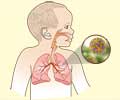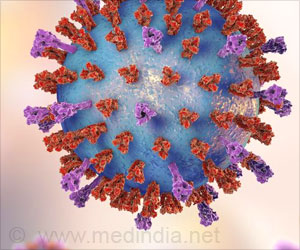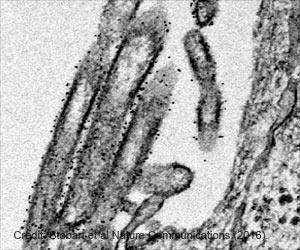Stay vigilant as Respiratory Syncytial Virus (RSV) cases surge, posing risks to children and vulnerable adults.
- RSV cases, especially among children, are escalating, with notable percentages recorded by the UK Health Security Agency
- Despite its typically mild nature, RSV leads to a significant number of GP appointments, hospital admissions, and deaths, emphasizing the need for awareness
- Dr. Conall Watson from UKHSA highlights the importance of recognizing symptoms, seeking prompt medical attention, and taking preventive measures, especially for infants
Epidemiology of respiratory syncytial virus in children younger than 5 years in England during the COVID-19 pandemic, measured by laboratory, clinical, and syndromic surveillance: a retrospective observational study
Go to source).
Prevalence of Respiratory Syncytial Virus
According to Wales Online, even though the illness is mild for the majority of individuals, it nevertheless causes approximately 450,000 GP appointments, 29,000 hospital admissions, and 83 deaths in children and adolescents in the UK each year (2✔ ✔Trusted SourceRespiratory syncytial virus (RSV)
Go to source).
It can also be dangerous for the elderly and other vulnerable adults, with 175,000 GP appointments, 14,000 hospitalizations, and 8,000 deaths in the country each year.
Respiratory Syncytial Virus Causes Respiratory Difficulties
"UKHSA surveillance shows that - as is expected as we head into winter - many young children are now requiring NHS assessment and care for conditions like bronchiolitis caused by RSV," said Dr Conall Watson, Consultant Epidemiologist at the UKHSA. RSV infections are typically minor, but in babies and the elderly, they can cause respiratory difficulties."Initial symptoms in infants are similar to a cold but can go on to include breathing more quickly or noisily and having difficulties feeding. If your baby has a cold that is getting worse, or it is causing unusual breathing or problems feeding, call NHS 111 or contact your GP practice.
"As a parent, you should trust your own judgement and call 999 or go to A&E if your child seems seriously unwell. You can protect yourself and others by washing your hands regularly, using a tissue to catch coughs or sneezes and washing your hands afterwards, and staying away from others if you feel unwell. RSV is another reason why babies need protection from tobacco smoke as this is linked with more severe RSV infections."
Respiratory Syncytial Virus Signs and Symptoms
Anyone infected with RSV will typically develop symptoms four to six days after becoming infected. Among the key symptoms are:- A runny nose
- Appetite suppression
- Coughing
- Sneezing
- Fever and wheezing
- Very young children who get infected may also exhibit irritability, decreased activity, and breathing issues
References:
- Epidemiology of respiratory syncytial virus in children younger than 5 years in England during the COVID-19 pandemic, measured by laboratory, clinical, and syndromic surveillance: a retrospective observational study - (https://www.thelancet.com/journals/laninf/article/PIIS1473-3099(22)00525-4/fulltext)
- Respiratory syncytial virus (RSV) - (https://www.ovg.ox.ac.uk/research/respiratory-syncytial-virus-rsv)
Source-Medindia
















